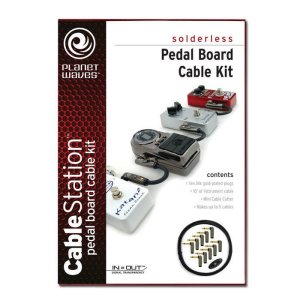Hi all. I'm investigating cables to (finally) get my pedalboard all wired up and it seems the easiest and cheapest way to get all the different lengths I'll need is to make them myself. From searching the forum and reading online I think I've settled on Mogami cable and Neutrik connectors. I was just wondering if someone could look over my choices and check I'm not about to make any expensive errors.
I'm looking at buying 20-ish metres of Mogami 2524 cable (here: http://www.ordiocables.com.au/product/mogami-2524-guitar-cable-per-metre/) to cut my Guitar>Board, Board>Amp and patch cables.
Then, this connector on each end of the Board>Amp cable: http://factorysound.com/products/np2x-b
One of the above, and one of these on the Guitar>Board cable: http://factorysound.com/products/np2x-au-silent
And these on both ends of the patch cables: http://factorysound.com/products/np2rx-b
Does that look sensible? The soldering job looks very simple to me, but are there any potential pitfalls I might be missing?
Thanks in advance!
I'm looking at buying 20-ish metres of Mogami 2524 cable (here: http://www.ordiocables.com.au/product/mogami-2524-guitar-cable-per-metre/) to cut my Guitar>Board, Board>Amp and patch cables.
Then, this connector on each end of the Board>Amp cable: http://factorysound.com/products/np2x-b
One of the above, and one of these on the Guitar>Board cable: http://factorysound.com/products/np2x-au-silent
And these on both ends of the patch cables: http://factorysound.com/products/np2rx-b
Does that look sensible? The soldering job looks very simple to me, but are there any potential pitfalls I might be missing?
Thanks in advance!




